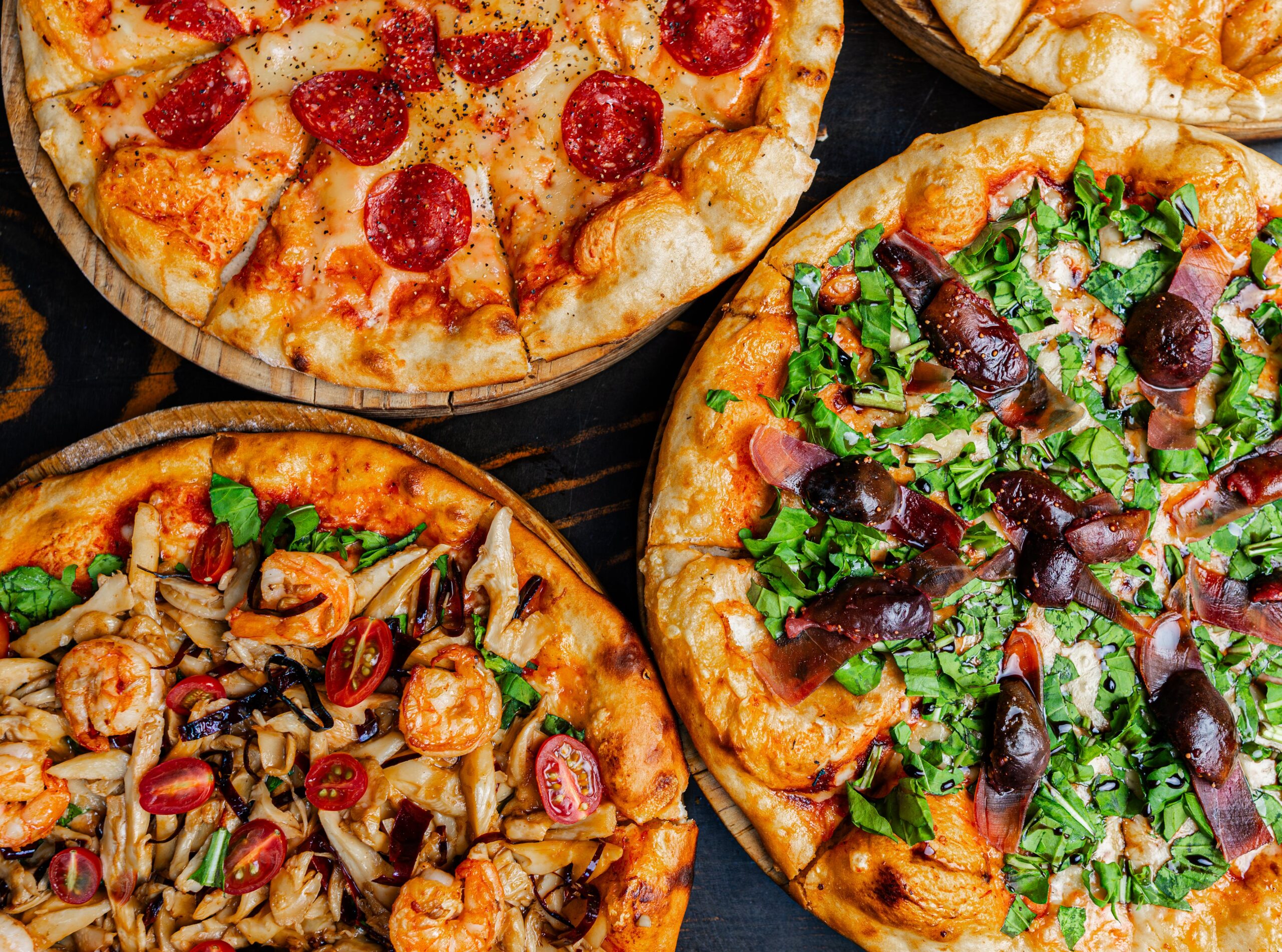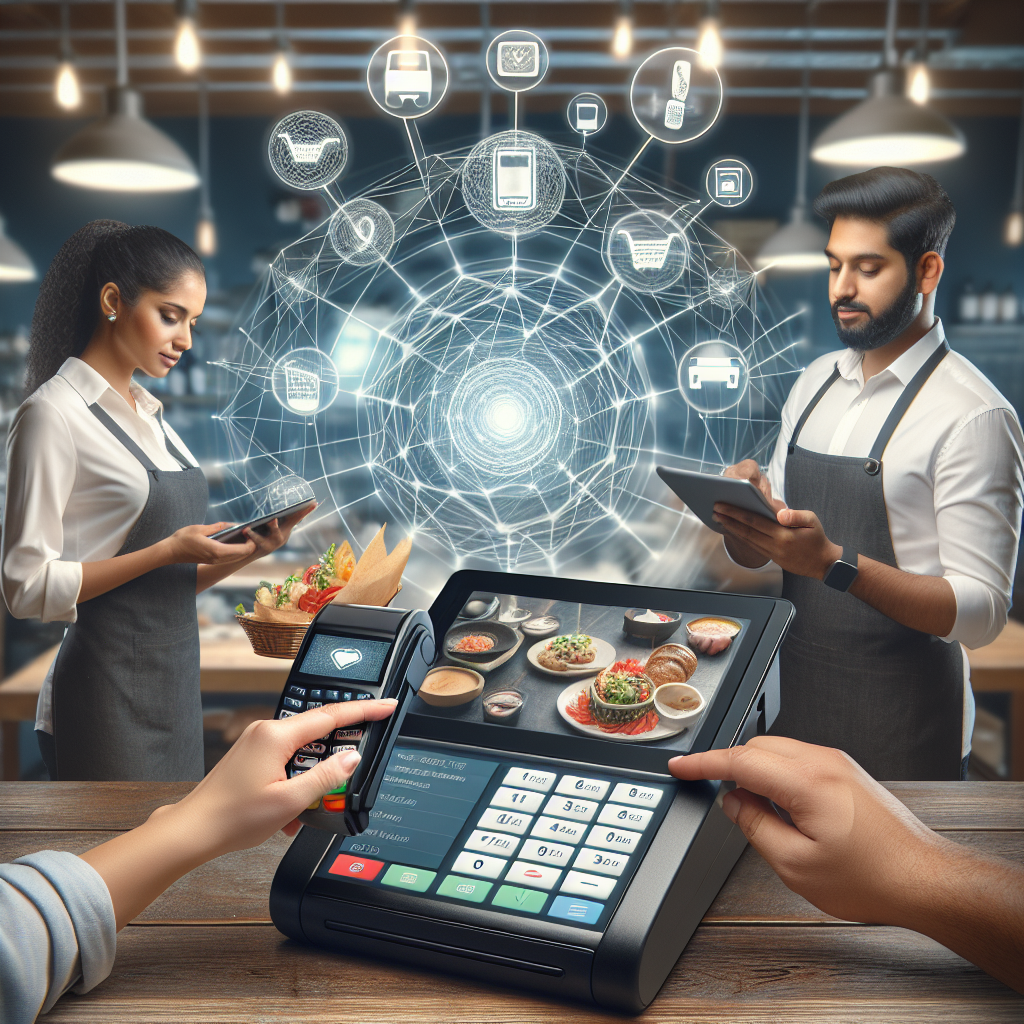Are you a restaurant owner or manager looking to upgrade your current point-of-sale (POS) system? With so many options available, it can be overwhelming to decide which system is the best fit for your business. But fear not! In this article, we will provide you with valuable insights and tips on how to choose the right POS system for your restaurant. From understanding your specific needs to considering important factors such as features, pricing, and customer support, we’ve got you covered. So let’s get started on this exciting journey of finding the perfect POS system for your restaurant!

Considerations for Choosing a POS System
Choosing the right point-of-sale (POS) system for your restaurant is a crucial decision that can greatly impact the success of your business. With so many options available in the market, it’s important to carefully consider several factors before making your choice. By considering the type of restaurant, features and capabilities, budget, scalability, ease of use, hardware compatibility, integration with other systems, customer support, data reporting and analytics, and security features, you can ensure that you choose a POS system that aligns with your specific needs and helps streamline your restaurant operations.
Understanding the Type of Restaurant
The type of restaurant you run plays a significant role in determining the POS system that fits your needs. Different types of restaurants require different functionalities and workflows. Here are some common types of restaurants and their specific requirements:
Fast Casual
Fast casual restaurants focus on providing quick service with higher-quality food than fast food establishments. These restaurants may require POS systems that can handle high volumes of orders, have efficient order and ticketing capabilities, and support customization options for unique menu items.
Fine Dining
Fine dining restaurants offer a sophisticated and upscale dining experience. POS systems for fine dining establishments should prioritize features like table management, reservation systems, and detailed reporting and analytics to track sales and inventory.
Quick Service
Quick-service restaurants, also known as fast food chains, require POS systems that can handle high-speed transactions, are easy to use for staff, and provide efficient order processing. Features like online ordering and delivery integration can also enhance the customer experience.
Food Truck
Food trucks often have limited space and require a compact and mobile POS system. Look for POS systems that are lightweight, portable, and compatible with different hardware devices for flexibility. Features like inventory management and ticketing can help streamline operations.
Cafe or Coffee Shop
Cafes and coffee shops have unique requirements such as the ability to handle customizations for various coffee drinks and in-house baked goods. POS systems for these establishments should prioritize menu customization, quick order processing, and integration with online ordering platforms.
Bar or Nightclub
Bars and nightclubs have distinct needs, including the ability to handle high volumes of drink orders, split checks, and provide inventory management for alcoholic beverages. POS systems with advanced features like automatic happy hour pricing and age verification can greatly benefit these establishments.
Understanding the specific needs and workflows of your restaurant type will help you choose a POS system that caters to your unique requirements.
Determining the Essential Features and Capabilities
Once you have a clear understanding of your restaurant type, it’s important to determine the essential features and capabilities that your POS system should have. Here are some key features to consider:
Ordering and Ticketing
Efficient and accurate order processing is essential for a smooth restaurant operation. Look for a POS system that allows for easy order input, can handle modifications and special requests, and generates detailed tickets for the kitchen staff.
Table Management
For restaurants with table service, table management capabilities are crucial. A POS system should enable you to efficiently manage table assignments, track table status, and handle reservations, ensuring a seamless dining experience for your guests.
Inventory Management
Inventory management is vital for controlling costs and ensuring that you have enough stock to meet customer demand. Choose a POS system that allows you to track inventory levels, receive automatic alerts for low stock, and generate reports that aid in inventory management.
Menu Customization
If your restaurant offers customizable menu items or special dietary options, make sure your POS system allows for easy menu customization. This feature will allow customers to personalize their orders while ensuring accuracy and efficiency for your staff.
Payment Processing
Smooth and secure payment processing is crucial to ensure customer satisfaction and streamline operations. Your POS system should support various payment options, including credit cards, mobile payments, and even contactless payments, to accommodate customer preferences.
Reporting and Analytics
Data-driven insights can help you make informed business decisions and identify areas for improvement. Choose a POS system that provides comprehensive reporting and analytics, such as sales reports, inventory reports, and customer insights, to help you optimize your restaurant’s performance.
Employee Management
Efficiently managing your staff is essential for a well-organized restaurant. Look for a POS system that offers employee management features, including shift scheduling, time tracking, and performance tracking, to streamline your staff management processes.
Online Ordering and Delivery Integration
In today’s digital age, online ordering and delivery services are becoming increasingly important for restaurants. Ensure that your POS system integrates seamlessly with popular online ordering platforms and provides features like real-time order tracking to enhance the online ordering and delivery experience.
Customer Relationship Management (CRM)
Building and maintaining strong customer relationships can significantly impact your restaurant’s success. Look for a POS system with CRM capabilities, such as customer database management, loyalty program integration, and targeted marketing features, to engage and retain your customers.
Determining the essential features and capabilities that align with your restaurant’s needs will help you narrow down your options and choose a POS system that maximizes efficiency and delivers a superior guest experience.
Setting a Realistic Budget
While choosing a POS system, it’s essential to set a realistic budget. Consider the following cost factors:
Cost of Hardware and Software
POS systems often require an initial investment in hardware, such as terminals, printers, and tablets, as well as software licenses. Determine your budget for both hardware and software to choose a POS system that best fits within your financial range.
Processing Fees
POS systems may charge transaction fees for credit card processing. It’s important to evaluate and compare these fees among different providers to ensure they align with your budget and won’t eat into your profits.
Ongoing Support and Maintenance
Consider the ongoing support and maintenance costs associated with the POS system. Some providers charge monthly or yearly fees for software updates, technical support, and troubleshooting. Factor these costs into your budget to ensure continuous system functionality.
Upgrades and Add-Ons
Anticipate future needs and growth when considering your budget. As your restaurant expands or requires additional features, there may be costs associated with upgrading your POS system or purchasing add-ons. Plan for these potential expenses accordingly.
By setting a realistic budget, you can narrow down your options and choose a POS system that aligns with your financial capabilities while still meeting your operational needs.

Considering Scalability for Future Growth
As you choose a POS system, it’s important to consider scalability to accommodate future growth and expansion plans. Here are some factors to consider:
Future Expansion Plans
If you have plans to expand your restaurant or open additional locations, choose a POS system that can easily scale with your growth. Look for systems that offer multi-location management, centralized reporting, and the ability to consolidate data for a holistic view of your business performance.
Multiple Locations
If you own multiple restaurant locations, it’s crucial to choose a POS system that can support and synchronize operations across all establishments. Ensure that the POS system you choose can seamlessly manage inventory, sales, and reporting for each location, providing you with a centralized control and visibility.
Integration with Additional Systems
Consider how the POS system integrates with other systems you currently use or may need in the future. For example, if you plan to implement online ordering platforms or accounting software, choose a POS system that integrates smoothly with these systems to avoid any inefficiencies or data inconsistencies.
By considering scalability, you can future-proof your restaurant and avoid the need for a system overhaul as your business grows.
Ensuring Ease of Use for Staff
Your staff’s ability to use the POS system easily and efficiently is essential for smooth operations. Here are some factors to consider for ease of use:
Intuitive User Interface
Choose a POS system with an intuitive and user-friendly interface. The system should have a logical layout, easy navigation, and clear instructions. This will ensure that your staff can quickly learn the system and use it effectively without extensive training.
Training and Onboarding
Consider the training and onboarding process offered by the POS system provider. Look for providers that offer comprehensive training materials, tutorials, and customer support to help your staff quickly become proficient in using the system.
Accessibility for Different Technical Proficiencies
Consider the technical proficiency of your staff when choosing a POS system. If you have a diverse range of technical abilities among your staff, ensure that the chosen system caters to all levels of expertise. Look for systems with customizable interfaces and support materials to accommodate different skill levels.
By prioritizing ease of use, you can minimize training time, reduce errors, and ensure that your staff can efficiently navigate the POS system, enhancing overall productivity and customer service.

Checking Hardware Compatibility
Before finalizing your choice of a POS system, consider the compatibility with your existing hardware. Here are some factors to check:
Compatibility with Existing Hardware
Determine if the POS system is compatible with your existing hardware, such as cash registers, printers, and card readers. This will save you from having to replace all your hardware and minimize additional expenses.
Mobility and Portability
Consider if mobility is a requirement for your restaurant. If you need staff to take orders and process payments at the table or while on the move, choose a POS system that supports mobile devices like tablets or smartphones. This will provide flexibility and convenience for your staff.
By ensuring compatibility with your existing hardware and considering mobility needs, you can seamlessly integrate the POS system into your restaurant without disrupting your current infrastructure.
Integration with Other Systems
To maximize efficiency and streamline operations, it’s important to choose a POS system that integrates seamlessly with other systems your restaurant relies on. Here are some key integration considerations:
Payment Gateways
Choose a POS system that integrates smoothly with your preferred payment gateway. This ensures that transactions are processed securely and efficiently, and reduces the risk of errors or delays in payment processing.
Accounting and Inventory Software
If you already use accounting or inventory management software, ensure that the POS system integrates effortlessly with these systems. This integration allows for accurate tracking of sales, expenses, and inventory levels, eliminating the need for manual data entry and reducing the risk of errors or discrepancies.
Online Ordering Platforms
If you offer online ordering services, choose a POS system that integrates seamlessly with popular online ordering platforms. This integration creates a streamlined order process, eliminates the need for manual order entry, and helps prevent order errors.
Reservation Systems
For restaurants that take reservations, consider a POS system that integrates with reservation platforms. This integration allows for real-time table availability, automatic updates, and seamless communication between the POS system and the reservation system.
By choosing a POS system with powerful integrations, you can centralize your operations, reduce manual tasks, and enhance overall efficiency and accuracy.

Evaluating Customer Support
Having reliable customer support is crucial when it comes to using a POS system effectively. Consider the following factors when evaluating customer support:
Availability and Responsiveness
Check the availability and responsiveness of the POS system provider’s customer support. Ensure that they offer support during your business hours and have prompt response times to address any urgent issues that may arise.
Technical Support Channels
Evaluate the available technical support channels provided by the POS system provider. Look for options like phone support, email support, and live chat to ensure you have accessible and convenient avenues for seeking assistance when needed.
User Communities and Forums
Consider if the POS system provider offers user communities or forums where users can share their experiences, ask questions, and find answers. These user communities provide a valuable resource for troubleshooting common issues and learning from the experiences of other users.
By choosing a POS system with strong customer support, you can ensure that any technical issues or concerns are addressed promptly and minimize disruptions to your restaurant’s operations.
Ensuring Security Features
When handling sensitive customer information and processing payments, security becomes a top priority. Here are some security features to look for in a POS system:
Payment Security and Compliance
Choose a POS system that prioritizes payment security and complies with industry standards and regulations, such as Payment Card Industry Data Security Standard (PCI DSS) compliance. This ensures that customer payment data is protected and reduces the risk of data breaches.
Data Encryption
Data encryption is essential for securing sensitive information, such as customer details and payment data. Ensure that the POS system you choose provides robust encryption measures to protect this information from unauthorized access.
User Permissions and Access Control
Granular user permissions and access controls are crucial for maintaining data confidentiality and preventing unauthorized access to sensitive areas of the POS system. Ensure that the POS system offers customizable user roles and restrictions to control access based on job responsibilities.
By prioritizing security features, you can protect your customers’ data, minimize the risk of fraud or data breaches, and maintain trust and confidence in your restaurant.
In conclusion, choosing the right POS system for your restaurant involves careful consideration of various factors. By understanding the type of restaurant, determining essential features and capabilities, setting a realistic budget, considering scalability, ensuring ease of use for staff, checking hardware compatibility, integrating with other systems, evaluating customer support, and ensuring security features, you can make an informed decision that aligns with your specific needs and sets your restaurant up for success. Remember, the right POS system can streamline operations, enhance the guest experience, and ultimately contribute to the growth and profitability of your restaurant.
